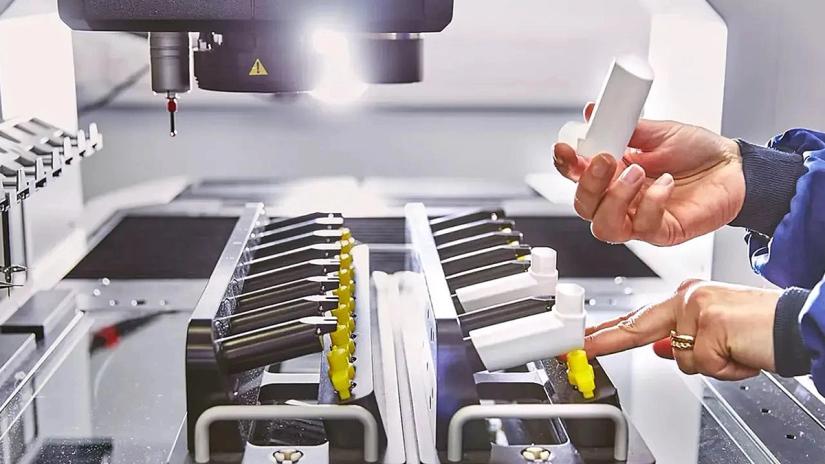Funding Innovation in Healthcare: The Good Case for Private Equity


When it comes to healthcare, investment drives innovation.
- Private equity funds healthcare innovation by providing capital, operational expertise, and strategic guidance.
Healthcare systems around the world are grappling with escalating costs, inefficiencies, and the increasing burden of aging populations and chronic diseases. The adoption of new technologies is often slow, hindered by regulatory hurdles and complex reimbursement models. Additionally, data silos and fragmented care delivery impede the seamless flow of information necessary for optimal patient care.
Private equity can be a powerful catalyst for innovation in healthcare and addressing these challenges.
What is private equity’s role in healthcare?
By providing funding, operational expertise, strategic guidance, and investing across the industry – from drug manufacturers and service providers to research firms and medical device manufacturers – private equity firms can help to streamline operations, reduce costs, and improve patient care.
Over the past decade, private equity has invested more than $280bn in 966 American life sciences companies and 924 medical devices and supplies companies. Investments in telemedicine platforms have improved access to care, particularly in underserved areas. PE-backed companies are developing AI-driven diagnostic tools to improve accuracy and efficiency in disease detection. Innovative medical devices, like wearable health monitors, AI-powered diagnostic tools, and portable ultrasound devices, often born out of PE-funded startups, are transforming treatments in various specialties. Private equity firms can help healthcare companies build their commercial muscle and expand their global reach, aiming to make these companies more efficient, innovative, and better at serving their ultimate customers: patients.
Provision of capital is the most obvious way private equity helps drive innovation. For example, private equity firms can supply the necessary funding for research and development, enabling healthcare companies to pursue solutions that might otherwise remain unexplored. This is crucial for startups and scale-ups in the life science and health-tech spaces, where developing and bringing new drugs and technologies to market can be capital-intensive.
Private equity firms can invest across the entire company lifecycle – from venture capital for early-stage startups, growth equity for companies with some market adoption looking to scale, and buyouts for mature companies looking to boost their value before an exit through a sale or IPO. This approach is particularly important in Europe, where the lack of funding for some of the high-growth healthcare companies often forces them to seek capital in the US at a certain stage in their development. By providing comprehensive lifecycle support, private equity firms contribute to promising healthcare innovations thriving and reaching their full potential.
Investing across different stages of development and sectors also gives private equity firms visibility of where they can be most impactful. If you invest at the earlier stages in a company’s development, you’re closer to the forefront of where innovation happens – and those trends will impact the more mature companies. Equally, a firm that invests across a variety of sectors can cross-pollinate their learnings from different sectors, bringing an outside perspective, best practices and playbooks from other sectors. By fostering a culture of innovation within portfolio companies and facilitating partnerships between startups and established healthcare providers, PE firms act as catalysts for change. They can bridge the gap between cutting-edge technology and traditional healthcare delivery models.
So it goes beyond just writing checks. Private equity firms bring in seasoned management teams with deep industry knowledge. These experts can implement best practices, streamline operations, and guide companies through the complex healthcare landscape. PE firms also excel at identifying market opportunities and potential synergies. They can assist portfolio companies in strategic decision-making, including mergers and acquisitions that create more robust, innovative entities.
In this way, private equity-backed healthcare companies are an important source of innovation for the broader health system. By investing in newer, cost-effective innovations across various markets, private equity helps reduce healthcare costs. Take medical device manufacturing – a fragmented market, with many small and inefficient manufacturers. Private equity firms can help create larger manufacturers that can benefit from economies of scale. This is important for patients because hospitals and other healthcare providers can access these products more efficiently and at a scale smaller companies couldn’t achieve. Private equity firms can also help carve out new companies from existing ones, transforming business units into standalone companies to run more efficiently. Over the past decade, private equity firms have created more than 500 new healthcare companies this way.

The impact of private equity in healthcare
Bespak
Established as a standalone company in 2024 following the carve-out of Recipharm’s former Advanced Delivery Systems business, Bespak is a global pharmaceutical contract development and manufacturing organization (CDMO) specializing in innovative inhaled and nasal drug delivery systems. The carve-out aims to unlock Bespak’s full potential by driving product development and customer acquisition in its core business of pressurized metered dose inhaler valves and dry powder inhalers, as well as by winning new manufacturing contracts. This is helping Bespak to solidify its footprint as an end-to-end player with a strong market position and technology at the forefront of the green propellant shift, with a particular focus on high-growth niches in nasal spray devices and soft mist inhalers where Bespak has proprietary IP and is early to market.
Cerba Healthcare
Cerba Healthcare is a leading provider of routine, specialty, and research medical lab testing in Europe, the Middle East and Africa (EMEA). EQT is supporting Cerba and the management team in growing its core laboratory testing activity in EMEA, pursuing international expansion of its offering for clinical research, and accelerating digitization initiatives – all while staying at the forefront of sustainability. Since 2021, EQT has supported Cerba’s acquisition of Italy’s largest medical lab network, Lifebrain, and several large regional lab groups in France, notably Labexa and Yourlab. In the pharma research testing segment, EQT helped Cerba’s synergistic acquisition of the leading specialty virology CRO, Viroclinics.
CluePoints
CluePoints, a market leader in SaaS-based (software as a service) clinical data analytics, leverages AI software for data interrogation and analytics in clinical trials. With support from EQT’s digital team and global network of industrial advisors, the aim is to cement CluePoints’ leadership in risk-based quality management (RBQM) and clinical trial data analytics. EQT is also helping CluePoints expand into growing adjacent markets and investing in its go-to-market engine, where EQT’s in-house operating resources, from enterprise software to pricing and packaging, are invaluable. In addition, access to EQT’s Life Sciences venture portfolio provides CluePoints with a long tail of small biotech companies that would never have been able to access such advanced tools.
ThinQ by EQT: A publication where private markets meet open minds. Join the conversation – [email protected]




